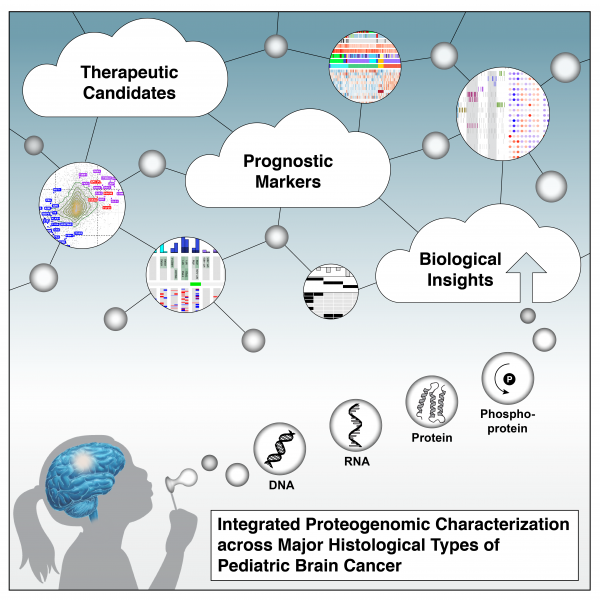Computational and Quantitative Biology PhD
Francesca Petralia - Integrated proteogenomic characterization across seven histological types of pediatric brain tumors

Venue: Teams
Speaker
Dr. Petralia received a PhD in Statistics from Duke University in 2013. She is currently Assistant Professor at the Department of Genetics and Genomic Sciences and the Icahn Institute of Data Science and Genomic Technology where she develops statistical and computational methods to address scientific questions based on data from high throughput biology/genetics experiments. Specifically, she works on the integration of proteogenomic data, the quantification of different cell types in cancer tissue from proteogenomic data and network analysis.
Abstract
We performed a comprehensive proteogenomic analysis across seven types of childhood brain tumors for a deeper understanding of their functional biology. Whole genome seq, RNAseq, quantitative proteomic and phosphoproteomic profiling were performed on 218 fresh frozen tumor samples representing the histologic diagnoses of low grade astrocytoma, ependymoma, high grade astrocytoma, medulloblastoma, ganglioglioma, craniopharyngioma and atypical teratoid rhabdoid tumor. Proteomics data identify common biological themes that span histological boundaries, suggesting that treatments used for one histological type may be applied effectively to other tumors sharing similar proteomics features. In particular, our proteomics-based clustering analyses revealed two distinct subgroups of pediatric craniopharyngioma, with one subgroup showing strikingly similar proteomics characteristics as pediatric low-grade gliomas BRAF-V600E tumors. This observation suggests potential use of MEK/MAPK inhibitors in a subset of pediatric craniopharyngiomas, which currently has no robust chemotherapy options. Proteomics data further reveal functional effects of somatic mutations and copy number variations (CNVs) not evident in transcriptomics data. Characterization of the tumor microenvironment through multi-omics based deconvolution analyses revealed 5 distinct tumor clusters associated with different populations of infiltrating immune cells: Cold-medullo,
Cold-mixed, Epithelial, Neuronal and Hot. The two cold-tumor clusters have the lowest immune cell infiltration, one characterized by the enrichment of medulloblastoma tumors; while the other is a mixture of ependymoma, ATRT, HGG and medulloblastoma. The Epithelial group, on the other hand, was enriched in craniopharyngioma samples, an epithelium derived tumor. This study reports the first large-scale deep comprehensive proteogenomic analysis crossing traditional histologic boundaries to uncover foundational pediatric brain tumor biology relating to tumor microenvironment. The incorporation of the proteomic and phosphoproteomic dimension into this large-scale multi-omic study adds functional insight that helps drive translational efforts.
All Dates
- 2021-04-09 15:00
Powered by iCagenda





